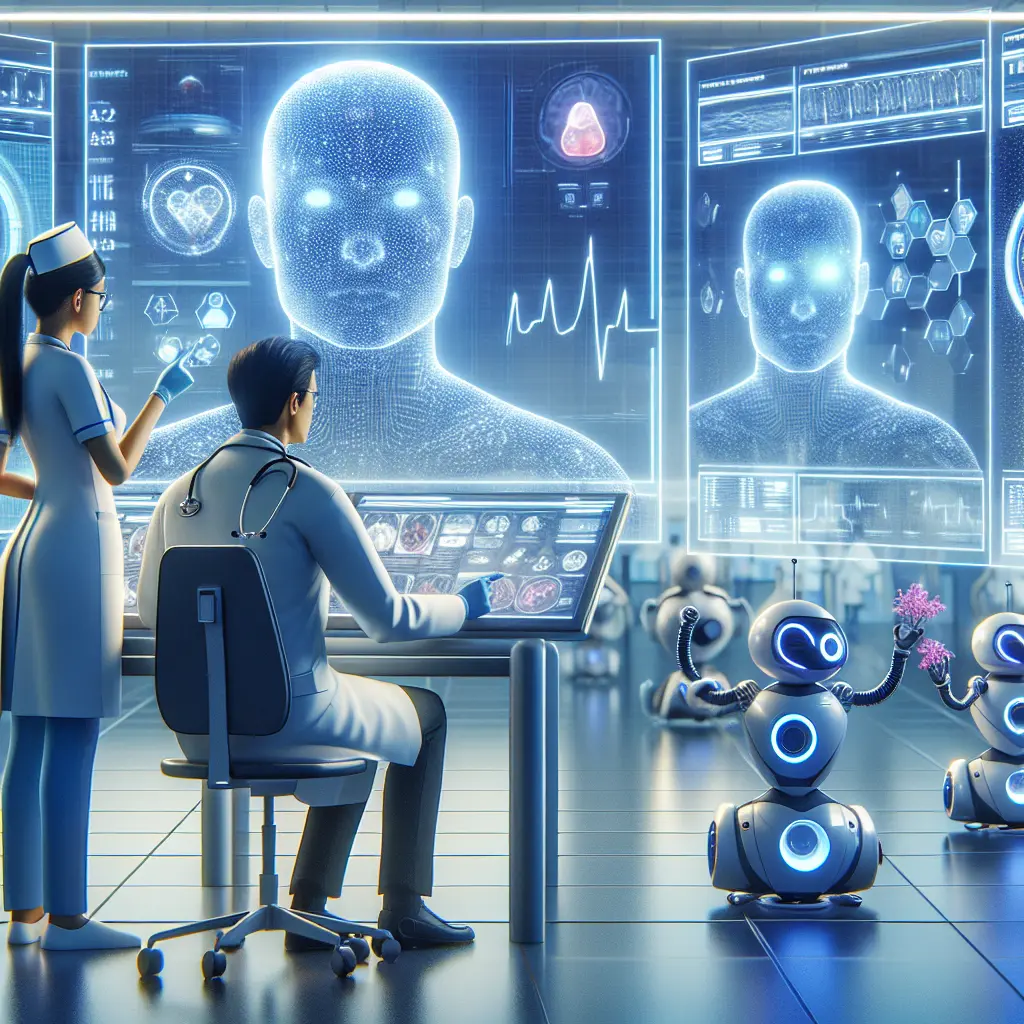
In the realm of healthcare, the integration of artificial intelligence (AI) has heralded a revolution, fundamentally transforming the way diseases are detected, diagnosed, and treated. Across various sectors of medicine, from radiology to pathology, AI's capabilities are being harnessed to enhance accuracy and efficiency, providing substantial benefits to both healthcare providers and patients.
The Rise of AI in Healthcare Diagnostics
Artificial intelligence in healthcare is no longer just a futuristic concept; it's a present-day reality improving outcomes through AI diagnostics. AI technology in healthcare leverages algorithms and deep learning to interpret complex medical data. The speed and accuracy of AI-enhanced medical diagnosis significantly surpass human capabilities in certain domains, such as AI in medical imaging and AI for disease detection.
Healthcare AI Advancements
One of the most groundbreaking applications of AI is in medical imaging. AI in radiology, for example, uses machine learning to identify patterns in imaging data that are invisible to the human eye. This application not only improves diagnostic accuracy but also significantly speeds up the process, leading to faster treatment decisions. Recent advancements can be seen in the tools developed for cancer detection. AI for cancer detection has shown remarkable success in identifying malignant tumors at early stages, drastically improving patient prognosis.
Moreover, AI in pathology has transformed tissue analysis, making the detection of complex diseases like cancer more precise and less dependent on subjective human interpretation. These advancements collectively underscore the immense potential of healthcare AI advancements.
Machine Learning in Healthcare
Machine learning, a subset of AI, involves training algorithms on large sets of data, enabling them to learn and make predictions or decisions without being explicitly programmed. In healthcare, this aspect of AI is particularly valuable. Machine learning healthcare applications range from predicting patient deterioration in ICUs to optimizing treatment plans based on historical data.
AI Tools for Doctors and Benefits
The benefits of AI in diagnostics are extensive. They include increased diagnostic accuracy, reduced error rates, and decreased diagnostic times. AI tools for doctors also help in managing and analyzing vast amounts of data, which can improve the overall quality of care. For instance, AI-enhanced tools assist in monitoring chronic conditions, predicting flare-ups, and personalizing treatment approaches based on individual patient data.
AI and Healthcare Innovation
Innovation through AI does not stop at diagnostics. AI impact on healthcare also extends to operational improvements such as scheduling, patient flow optimization, and even robotic surgeries where precision is critical. Moreover, companies like Richard Childress Racing are utilizing AI for perfecting strategies like pit stops in NASCAR races, demonstrating the versatility and potential of AI across various fields (Source: NASCAR).
Controversies and Ethical Considerations
Despite its benefits, the deployment of AI in healthcare is not without controversy. For instance, a dating app attempted to use AI to screen for STDs through images but was quickly shut down due to ethical concerns and effectiveness issues (Source: Health News). Such instances highlight the challenges and ethical dilemmas that arise with the use of AI technology.
Recent Developments and Safety Measures
Organizations like OpenAI are continuously researching ways to make AI systems safer and more transparent. However, critics argue that while these are steps in the right direction, they are not sufficient to mitigate all risks associated with AI technology (Source: TechCrunch). This ongoing dialogue emphasizes the need for robust ethical frameworks and regulatory oversight in the deployment of AI tools.
The Future Outlook
As we look towards the future, AI's role in healthcare only seems to be expanding. With tech giants like Apple planning to roll out new AI features despite delays (Source: Bloomberg), and governmental bodies like America’s Cyber Security Agency enhancing focus on AI (Source: Government Technology), it is evident that AI will continue to be a cornerstone of technological progress in healthcare.
In conclusion, the fusion of artificial intelligence with healthcare diagnostics is a game changer. It promises enhanced diagnostic precision, faster patient outcomes, and overall improved efficiencies. As we navigate through the complexities and challenges posed by this integration, the overarching goal remains clear: harnessing AI's potential responsibly to forge pathways to better health outcomes worldwide.
Thank you for reading, Helen Marlow